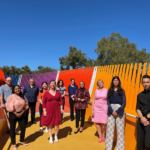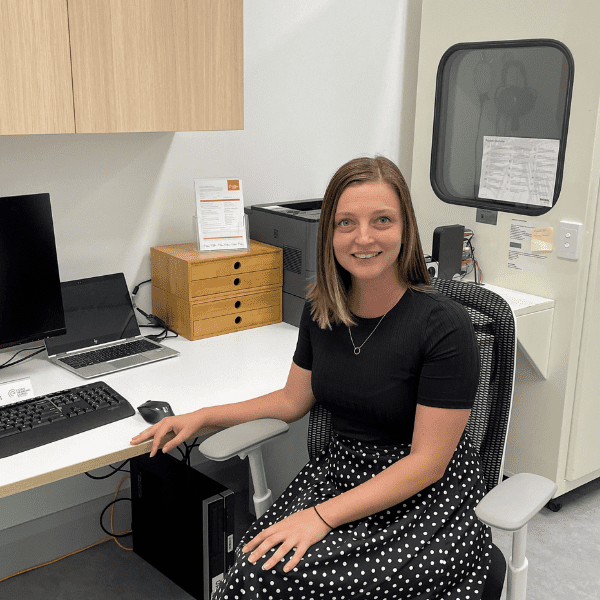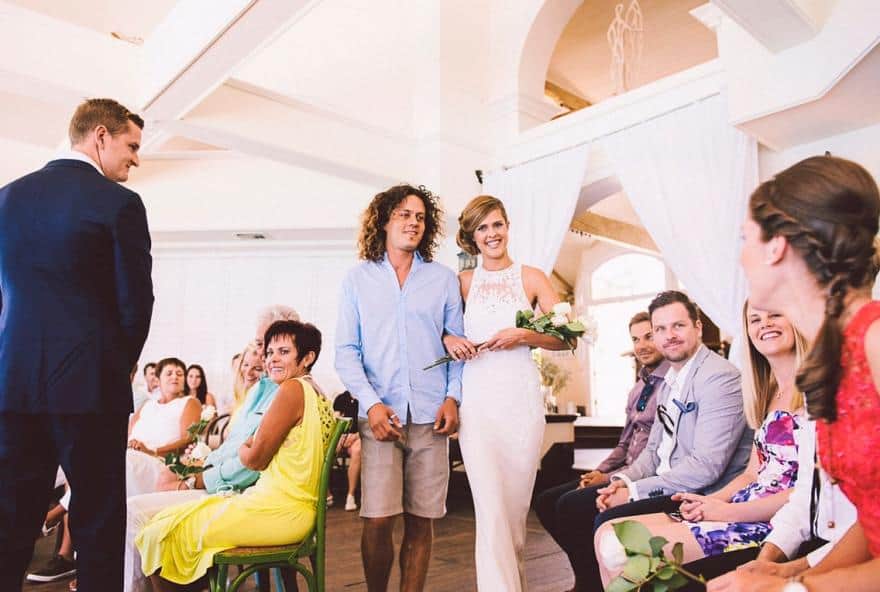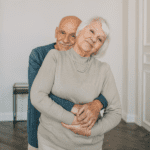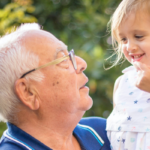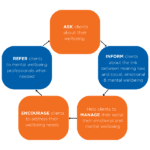In this episode, Audiologist Dr Bec Bennett will share with us some of her latest research into some of the less understood aspects of Hearing Loss – the social and emotional impacts.
Dan: 0:02 This is the Ear Science Podcast, The Science of Healthy Hearing.
Lize Coetzee: [0:08] Hello and welcome to the Ear Science Podcast, The Science of Healthy Hearing. Proudly presented by Ear Science Institute Australia, a not-for-profit medical research institute. In this podcast we’ll bring you into our world, the world of ear and hearing science. Together with Dr. Bec Bennett, we’ll discuss the latest in ear and hearing research and what it means to you.
Dan Van Der Meer: [0:31] I’m Dan van der Meer. I’m a digital content specialist, podcast host, and I’m passionate about raising awareness for the impact of hearing loss.
Lize: [0:38] And I’m Lize Coetzee. I’m a qualified audiologist and the Chief Operating Officer at Ear Science Institute Australia.
Dan: [0:45] This podcast provides information of a general nature and does not constitute medical advice. Now, first up, have a listen to this.
Female Interviewee 1: [0:53] I do feel excluded, because sometimes you hear conversations and laughter and you’re not part of it. You hear bits of it but not the whole conversation.
Female Interviewee 2: [1:05] When I gave up work, I was devastated. You know, I was a top of my game, you know, fabulous career. And I had to give it up because I just had to deal with the ear health, had to. There was nobody I could talk to about how devastated I felt.
Male Interviewer 1: [1:22] Loneliness is an issue that comes with hearing loss. Two people having a conversation and you’re a third party in the conversation, and they’re talking and I’m thinking, what on earth are they talking about? In order to avoid having to communicate with people, I’d rather just be by myself.
Male Interviewee 2: [1:42] I almost play cryptic crosswords when I’m listening to people because I hear a word, I’ve got to make an interpretations what that word was, and I can quite often get the wrong meaning. I have been embarrassed in that scenario.
Female Interviewee 3: [2:01] Without realizing, and I probably speak quite loudly now, I met a guy, walked in, and I didn’t know, and I turned to my daughter who was sitting next to me and I said, Oh, is that so and so? But apparently, I said it in a very loud voice. And she said to me, mom, mom, you know you’re speaking too loud. And that was very embarrassing in that situation.
Female Interviewee 4: [2:21] I would say that I have felt excluded at my social gatherings even with hearing aids. Despite telling people that you are hearing impaired or deaf, they don’t change their behaviour.
Dan: [2:34] That is an excerpt from a video on our YouTube channel. And right now on the line, we have Dr. Bec Bennett. Bec, welcome to the Ear Science Podcast, The Science of Healthy Hearing.
Dr. Bec Bennett: [2:43] Thanks, Dan. Thanks for having me.
Dan: [2:45] So great to have you.
Lize: [2:46] Bec, I’ll get us started. I’ve worked with you for so many years now.
Dr. Bennett: [2:51] We have.
Lize: [2:53] You know, first as clinicians working in audiologists working together. And now with you being a researcher, can you tell us a little bit more of this journey going from being an audiologist to a researcher?
Dr Bennett: [3:04] Yeah, for sure. So, I’ve been a clinical audiologist for 17 years now. And I worked clinically at the Ear Science Institute, started there about 12 years ago now. And then I was fortunate to work in the clinic and in clinical management there at the Lions Hearing Clinic. But I was really interested in a lot of the research that the Institute was doing, and very fortunate that we’re the only organization in Australia that has both the clinical and the research working side by side, and not just clinicians and researchers working side by side, but as an institute. I could be both a clinician and become a researcher, both within the same organization. And so, I’m able to do the research and also still see patients and work clinically with patients and apply that research. And it’s a wonderful organization, I’ve enjoyed immensely.
Dan: [4:01] That’s awesome.
Lize: [4:01] Bec, you just shared with us such powerful stories from people describing how their hearing loss impacts them. You are an audiologist and a researcher with Ear Science Institute Australia. And those people we heard of are really participants in your research. Can you tell me a little bit more about the research that you are currently doing and why this research? Why did you choose to look at the social and emotional impacts of hearing loss?
Dr Bennett: [4:30] Yes, so as a clinician, while I was working with adults with hearing loss, providing hearing services, I would say that there were some clients who would get hearing aids and do really, really well. And there were other clients who would get hearing aids and do quite well with their hearing but they would still feel socially isolated and disconnected within the general life. And so, I was really interested to find out more about what this phenomenon is and what’s going on with these individuals. And so, we ran this research project called sort of focus groups where we interview adults with hearing loss, people who have experiencing this social and emotional impact of hearing loss, some with hearing aids, some without, to better understand their journey and what happens to these people. Now, for people with hearing loss, it can be quite an isolating experience. Because if you imagine, I don’t know if you’ve ever been to like a really noisy restaurant and everyone’s talking, and there’s lots going on, and it’s really hard to hear, we’ve all been in a really challenging environment where you just can’t have a full conversation with the person sitting next to you. But for people with hearing loss, this is happening to them all the time, every day, in almost every aspect of their day, even at work, or even in quiet cafes, they’re really struggling to finish conversations and connect and catch the nuances, those little jokes. And so, it can be really isolating.
Lize: [6:00] So, Bec, that’s so powerful. You know, again, seeing the researcher and the audiologist working together. So that problem’s starting from the clinic, you’re seeing it with your real clients, your real patients, and then bringing that into research so we can understand those problems more to see how we can help people.
Dr Bennett: [6:20] Yeah, I think it’s exactly that, that puts us in a unique position where as a clinician, myself, working with adults with hearing loss and working alongside to see other clinicians kind of thing. We see the problems that people are experiencing, and we talk about the problems in the current gaps in clinical services. But then we’re able to take it into the research lab and delve deeper and find out more about what these problems are. And then importantly, start to design interventions and start to design these sort of research programs that allow us to overcome some of these problems.
Dan: [6:56] So I was going to say, it’s almost like its research in real time, that’s what I love about this, is, it must be great for the patient to know that you know, what they’re telling you is stuff you can take back and study further. It’s fantastic.
Dr Bennett: [7:07] Yeah, it is. And I like the way you put that down. It is research in real time. So, what we’re doing is we’re conducting this research to design these sorts of better ways of doing audiology, and we’re testing them and then fine tuning them and then implementing them straight into the clinics. So, the Lions Hearing Clinics and the Ear Science clinics are the first ones to have these sorts of extra levels of support and research intervention programs that help people to identify their own social and emotional impacts of hearing loss, and then develop those sort of skills and strategies to overcome them. And to hear better and to live more fulfilling lives.
Dan: [7:46] Yeah, great.
Lize: [7:48] Bec, can I ask what is the research telling? You know, we sort of speaking about the social and emotional impacts of hearing loss? But can you tell us what the research is actually showing?
Dr Bennett: [8:01] Yeah, so there’s a, I guess, a few different things to think about here. Because the hearing loss disconnects us from sort of social and emotional connections with the people in our lives, for some people, it can really start to cause a lot of withdrawal and isolation and loneliness. And it can also then contribute to more sort of significant mental health impacts. And we see higher rates of anxiety and depression in older adults with unmanaged hearing loss. But what the research does show us is early intervention, so if people when they start to sense the signs of hearing loss, and if they look to see their audiologist and get help for their hearing loss, hearing a cochlear implants and that sort of service based support as well, then we do see an increase, an improvement rather, in that loneliness, and an improvement in those symptoms of anxiety and mental well being. So, people not only hear better, but they feel better, and they do better, and they can socially connect better when they get that hearing intervention earlier, definitely. But it’s not too late. It’s never too late at any age, it’s important to reach out and get the help you need.
Dan: [9:21] Yep. And I mean, just you know, there’s the few experts we heard at the beginning of this podcast and also on the YouTube video we’ve got on our YouTube channel, you can hear and see the benefits of getting it looked at, you know, that the relief in people, almost the relief in people’s reactions once they’ve done something about the hearing loss, it’s quite palpable actually to see it and quite emotional watching, actually, it’s so lovely thing. You were saying before Bec, the impacts can be quite hidden. How would I know that a loved one may be experiencing hearing loss or the effects of hearing loss?
Dr Bennett: 9:54 Yeah, so hearing loss can affect us all in different ways. So some people are really good at developing their own kind of coping strategies. And so maybe they can cover up hearing loss for quite a while, or maybe they can actually cope and deal okay with hearing loss for quite a while. But for others who need astute hearing, whether it’s sort of sort for work or in their social life, they will feel the effects more so and they need to get it addressed sooner. But if you don’t mind, there is this sort of silly joke that I sometimes tell my clients that I work with, to help kind of explain how we can sometimes not notice it in ourselves. So if you imagine a fellow’s gone to see his GP and he said, “Doc, I think my wife has hearing loss.” And maybe you’ve heard this one before, I know you have.
Dan: [10:48] Keep going, keep going, I love this joke.
Dr Bennett: [10:51] You like a good joke right? So, this fellow goes to the Doc, “I think my wife has a hearing loss.” And then the doctor says, “Right, so, when you get home, this is how you can test it out. I want you to stand three meters behind her and ask her what’s for dinner, and then get closer and closer until you see how close you need to be to till she responds. And that’s how bad you know the hearing is.” So he goes, “Okay, got it.” And he gets home and his wife is in the kitchen cooking dinner. And he says, “Great, perfect opportunity.” He stands three meters behind her, “Hon, what’s for dinner?” No answer. He takes a step forward and says “Hon, what’s for dinner?” Again, no answer. So, he thinks, oh, she is worse than I thought. He takes another step forward. He’s right behind her now and says, “Hon, what’s for dinner?” And she turns around and says, “For the third time, steak and chips.”
(Laughter)
Dr Bennett: [11:39] It’s so simple, but I love it. Because it just shows that sometimes we don’t even notice our own signs and symptoms for hearing loss. Sometimes we think it’s the people around us that are mumbling or that are not hearing us properly, or that they’re not communicating well. But sometimes it’s us. Sometimes we’re the ones that we’re not hearing well. And I think hearing loss has this kind of stigma about it or people feel like we can’t talk about it. But the bottom line is, if you have any concerns about yourself or your loved one, all come in on in together, come and have you hearing check anyway, the only way to really know for sure is to just have a quick hearing screen and then we’ll know. Yeah, do it.
Lize: [12:24] It’s so simple Bec, isn’t it? Just coming for a hearing test. And, you know, we still know it’s on average, people take seven years to do something about the hearing loss. You know, and you know, you mentioned maybe a few reasons that why that’s actually is the fact because people don’t know. And also, they think hearing loss will be something that they just can’t hear. But it often manifests in, “I just don’t want to go to that restaurant anymore. And I don’t want to interact with that person anymore.” And they think that’s just them, you know, not wanting to do those things. But it actually starts with that hearing loss. So, we need to get hearing testing, just sort of part of people’s normal health checks. And I’ve said it already in the podcast, you know, we need to just make it something that we do every year.
Dan: [13:09] Yeah.
Dr Bennett: [13:10] Yeah. Lize, your alignment of the little clips that you heard at the beginning of this podcast, or from one of the group discussion sessions we held with adults with hearing loss. But one of the ladies who wasn’t in that clip, but who was at one of these big group sessions was only really young, but only been in her early 50s. And was just starting to get hearing loss and had got her first pair of hearing aids. And she came along to actually support a friend of hers who was feeling socially anxious, so she wasn’t there for herself. She was there to support her friend in the group. And as we were talking and everyone would talk about their experience and their kind of behaviors of socially withdrawing or not going to things as much as they used to because of their hearing loss, she started to get really emotional. And she said actually, to her, she hadn’t even realized that she was doing it. And so she and her friends live in Perth, and they go to the Fringe Festival and Big Art Festival every February in Perth. And she was saying that the last time it was on, she and her friends who normally go every year to watch the show, she kind of said to them all, “I don’t think I’ll really come to any and you guys go and I wind and then she missed out on the show. And she missed out on the dinner afterwards. And she missed out on the chats the week following about how funny it all was. She was saying that she hadn’t actually realized how much her hearing loss was impacting on how she interacted in her social circles until she heard other people telling their stories and talking about it and then it made her reflect and really think about it. So, I think something we need to do is just to start talking about it more. There’s no problem with talking about it. We need to be aware of it, talk about it, listen to each other’s stories, and then we can really learn to understand our situation and what’s happening to us.
Dan: [15:05] Well, that’s why we’re doing this podcast.
Lize: [15:06] That’s exactly right.
Dr Bennett: [15:09] Conversation starter. I like it.
Lize: [15:12] And even something like COVID has made us all talk a little bit more about how the lockdowns has made us lonely and maybe a little bit more anxious about going out to social situations. So those conversations have almost been opened up a little bit more. So hopefully, you know, something like this might make somebody speak about how their hearing loss has made them more lonely and isolated as well.
Dr Bennett: 15:37 Yeah. definitely.
Dan: [15:39] Okay, Bec. So how can we help turn things around for those experiencing these impacts we talked about?
Dr Bennett: [15:46] Yeah, so I guess there’s a few different things. I feel like I’ve answered every question with that, sorry. (Laughter)
Dan: [15:51] Is it another joke? (Laughter)
Dr Bennett: [15:57] What we’re looking at with our research is how we can help turn things around for people with hearing loss that are experiencing these social emotional impacts. And so, we know that hearing devices are part of the solution, but there is more that we can do, and there is more that audiologists can do as well. So, one of my research projects, I partnered with international leading researchers from around the world. And we looked at clinics and clinicians, hearing health care clinicians from around the world to look at what they do to help address their social and emotional impact of hearing loss with the clients that they see. And collectively, they came up with a list of 93 individual things that clinicians can do to help support their clients’ social emotional needs. And these included fitting devices, but more importantly, how devices are actually programmed. So, making sure that you find a clinician that you can work well with, who will take the time to sit with you, and program your hearing devices appropriately for your needs. Sometimes people might need extra kind of remote controls or apps or different bits and bobs that go with the hearing devices to help them hear better in noisy situations. So, for example, there are these extra little microphones that you can get to clip on to your spouse or your partner’s blouse or shirt in a noisy restaurant situation. There are these sort of device type interventions. But importantly, there are a whole suite of service based or sort of human-to-human types of interventions and support that the hearing healthcare clinician audiologist can deliver. So, one of the programs that we’ve started developing as part of our research project is to look at how we can improve the skills of the clinician to first of all ask about social and emotional well being, talk about it, raise awareness about the need to identify and discuss it, but then provide that real time support to people. And so, some people might just need opportunity to talk about how things are going. Some people might need some communication training, some sort of skills for how to manage some of the social situations that they find difficult. But importantly, it’s not just the person with hearing loss, it’s also their spouse and their family. And so that’s where it’s really important that all these extra people come into these appointments as well. And that’s what part of our research has shown. And that’s where we’re fortunate to be partnering with Lize and her staff at the Lions Hearing Clinic, to be rolling out this research in the clinics, and so that the staff are really well trained now to have these conversations and support people for their social emotional needs. And not just people with hearing loss, but also their significant others, their spouses, their daughter, and son, and neighbor, and friend, whoever they want to bring in. But it’s skills that we all need to learn.
Dan: [18:57] Yeah, you know, I mean, I mentioned the top of the podcast, I’m a digital content person, I make video and you know, all sorts of stuff for websites and social media. But I can tell you now is you know, just reflective of how important is audio in my line of work, like the amount of people who focus on video but forget about audio? And to give you an example, there’s nothing worse than watching a movie on YouTube that’s got terrible sound. And so, what you’re saying, the whole, I don’t think I’ve heard of that, that’s a fantastic idea. If you’re in a restaurant to mic up your spouse so you can still hear and hear properly.
Dr Bennett: [19:31] Yeah. As annoying.
Dan: [19:32] Oh, yeah, it’s fantastic. So, it just highlights I think the importance of audio in our lives. (Laughter)
Lize: [19:39] And Bec, I was gonna just say, you know, you implementing this work these, you know, sort of the latest research into the Lions clinics, how empowering it has been for the clinicians. It’s been so fantastic. So, family centered care is what we call it in research, and you know, it’s not just the person with hearing loss. But now when we know the social and emotional impacts of hearing loss and how it impacts your ability to participate in activity. It’s not just the person with hearing loss, we have to work with their family so that we can get them to enjoy their dinnertime conversation. And it’s been so amazing the research that’s come from Bec and the tools that we’ve got now to send them home and get them back to their activity. And I can’t remember what that sheet was called, activity scheduling. And it allows us to teach people, how do you go back to a restaurant? How do you go back to Fringe? You know, those friends might have then said, “Oh, well, you know, Sally doesn’t want to come anymore, so we won’t invite Sally.” So how’s Sally going to initiate that conversation again? People are so disconnected and they don’t know how to connect again. So that’s the role that the audiologist plays. And actually getting them there again. They’ve got the hearing aids, they’re ready to go. And now we give them those tools, so that they can go to Fringe next year again.
Dan: [21:04] Yeah. And I guess, as the layman here, you know, I’m realizing that there is an emotional connection between, you know, not being able to hear and then hearing again, and then all the impacts that come from that. So yes, that’s right.
Dr Bennett: [21:14] That’s it.
Lize: [21:16] So, Bec, why do you think it’s so important to undertake research in this area? And how do you hope your research will have an impact on people who are experiencing hearing loss or might do in the future?
Dr Bennett: [21:32] I guess, we’ve understood that there is a sort of social or emotional impact of hearing loss for quite a while. But it’s only been recently that researchers really delved into this sort of direct cause and to start to look at what we can do about it. I think the focus was always for those with extreme hard of hearing or deafness, that there was this assumption of social and emotional impact. But I think there was this kind of feeling that people with more mild hearing loss were probably doing okay, but the reality is a lot of people with mild hearing loss are actually not doing okay, they are still suffering this sort of emotional impacts and impacting on their social life. And so, I just feel like it’s a really important time for us to be doing this research. And when I started in researching this area, about five years ago, I ran some surveys across the country, and to look at what audiologist hearing healthcare clinicians are actually doing in this space. And unfortunately, what we found is that a lot of clinicians aren’t asking questions and aren’t providing support. So, the psychosocial impacts of hearing loss. And in fact, a lot of clinicians are focusing purely on the hearing, and perhaps on hearing devices. And when we delve into why that’s the case, a lot of the clinicians who say they actually didn’t have the skills or the knowledge or the resources, they didn’t know how to help people that were feeling emotionally distressed, or socially disconnected because of their hearing loss. And so, I guess I, at that point, decided, well, I want to fix that then. So, while my research is about adults with hearing loss, the last few years I’ve dedicated my time to a few projects that more specifically focus on the skills of the clinician, because I want to see if we can improve the skills of audiologist and our clinicians in asking the questions and providing that support and intervention, then its going to have this flow on effect. And we’re going to see a shift in the way audiological services are delivered and we’re going to see an improvement for people with hearing loss. So, I’ve been fortunate to work with Audiology Australia, the national professional body for audiologists here in Australia, to talk about my research and share some of the research programs and some of these skills-based sort of training resources, audiologists around the country. And so, the Lions Hearing Clinic were the first to implement this sort of training program. And now there are quite a few clinics around the country starting to roll it out. So, we are now starting to see clinician make time within their appointments to ask about emotional well being, to ask about how hearing loss is impacting on social connection and to provide that support to the people who need it.
Dan: [24:31] Oh, that’s awesome.
Lize: [24:33] and Bec, this research has also impacted funding for hearing services through the Hearing Services Program. Is that right?
Dr Bennett: [24:42] Yeah, yeah, it’s very exciting. It has. So, the hearing assessment and hearing devices are currently funded through the Australian Government for select individuals who pension card holders and another people criteria. And previously, the funding delivered through the government funded program has specifically been for hearing devices during assessments and programs that are specific to the hearing. Now, even though there has been a lot of research to show that there are these social emotional impacts of hearing loss, there was never any funding available for clinicians to provide these sorts of services. Though there was a review this year of the Hearing Research Program and the funding associated with it and in the government release of the inquiry, reviewing the program, they’ve quoted our research to show how the importance of hearing, the understanding, and of audiologist addressing the social and emotional impacts of hearing loss. And so, we’re looking forward to see how the government responds to this inquiry, and how much funding is put towards these aspects now, because it’s very much needed for funding to be able to fund these services to people.
Lize: [26:07] So powerful Bec.
Dan: [26:09] Well, Bec, I’ve loved speaking to you. You’re clearly passionate, and, you know, really dedicated to what you’re doing is just fantastic. What motivates your research and work in this area?
Dr Bennett: [26:22] I think it stems from the clinic. I mean, I’ve been a clinical audiologist working with adults with hearing loss for 17 years now. And so, I guess it’s when I see people who are, there are some people who do so well, and there are some people who are still so impacted by their hearing loss that I just think we can do better, I just think we can improve the way we deliver hearing health services so that everyone has the opportunity to not only hear better, but to overcome the impacts of their hearing loss and lead fulfilling lives.
Dan: [26:59] Oh, lovely.
Lize: [26:59] Bec, just finishing us off, what are your key takeaways that our listeners can take home today?
Dr Bennett: [27:09] I think the first one would be to not be afraid to talk about hearing loss and social and emotional impacts of hearing loss. And if you feel like you’re being left out of the conversation or you’re worried that someone else has been left out of the conversation, then to speak up about it, ask questions, ask people to include you, ask people how you can help include them, and to kind of start that conversation. Let’s talk about it. Let’s go there, have a conversation so we can start to address it. I guess the second point would be about empathy. So just considering other people situation and where they’re at. So sometimes, we might get frustrated at someone else who’s not doing anything about their hearing loss. It can be frustrating living with someone in downstate denial about their hearing loss. But it’s really important that we have those conversations with them in a supportive way that we understand their needs, their concerns, where they’re coming from, we normalize the conversation and make it a safe place for them to reach out and get the help they need. And then thirdly, I guess it would be about the timeline, it’s certainly never too late. But it’s always better to start early. So, you know, the old phrase, use it or lose it? Well, hearing is the same. If we get on top of our hearing loss earlier in life, then the quality of our hearing is best. So, if we ignore hearing loss for too long, then those nerves in our brain can start to sort of degrade and the signal breakdown and say the sound quality isn’t as good. So, we’ve got to use it or we lose it. So, get into the clinic early and get that hearing test so that you can see where you’re at.
Dan: [28:59] Yeah, that’s fantastic Bec. So, what could we do as family members within that situation? What could we do at the time to include that that person we talked about?
Dr Bennett: [29:11] Yeah, there are a couple of really simple but really cool things we can do. So first of all, we need to think about the background noise. So, if we’ve got loud music in the background, turn that down. Sit that family member at the quiet end of the table and with the music down at the other end or turn the music off, if possible. If there’s a lot of people maybe set it up to this two separate tables so that the noise of the other conversation is a bit further away. So whatever kind of noise is in the room, try and move it to the other side of the room so that it’s not so close to the person with hearing loss. We also need to think about all those visual cues. So, we hear or we communicate not just with our hearing and our ears, but with our eyes. So, we need good lighting. We need to make sure we have our glass, that kind of thing. But we also need to make sure we’re using face to face communication. So, we need to make sure we’re sitting opposite each other or that we can see each other’s faces as we’re talking. We need to make sure that we’re using a clear voice. We’re not mumbling, we’re not using just slang or you know, where we’re talking as clearly as possible. And if our significant other with hearing loss is older, sort of 80 plus, then perhaps we may also need to slow down the rate of talking. So, we need to make sure we’re not being condescending or anything, we’re not being silly about it. But we’re just slowing it down slightly but so that it’s still clear and clear how we’re talking. Really important that we check in and make sure that they are hearing and understanding. And if it is getting too much, then we might like to break away into a quiet room, go and sit out on the deck and have a one-on-one conversation or a smaller group conversation, that kind of thing. But making sure it’s done in a way that they feel included, and not like a burden on everyone else kind of thing. What we’re aiming for here is a quality that we’re all working together.
Dan: [31:09} Yeah. That’s great of us. Great of us
Lize: [31:11] Thank you so much Bec for joining us today. Your research is so important to ensure we all have better understanding of the important ways in which hearing loss can affect us and to provide the support people need to live long, healthy lives.
Dan: [31:26] Thank you so much for joining us, Bec.
Dr Bennett: [31:28] My pleasure. Great to see you guys.
Female Speaker 1: [31:31] Lions hearing Clinic is the most trusted hearing provider in western Australia. With 20 clinics throughout Perth and the Southwest, our dedicated and qualified audiologists deliver hearing care led by science. Head to www.lionshearing.org.au to read some of the wonderful reviews from our clients and with one click you can start your healthy hearing journey by requesting an appointment at your local Lions clinic. Don’t delay. Start your healthy hearing journey today.
Dan: [32:05] If you’ve enjoyed this episode, let us know by writing and reviewing this podcast or sharing it with a friend or a family member. Make sure you subscribe so you don’t miss an episode. Next time, we will be talking to Sasha Benatar, audiologist and a tinnitus specialist who will go into more data about a condition that is commonly known as the ringing in your ears.
Female Speaker 2: [32:23] What we’re trying to do is take that approach with tinnitus management. And that’s the thing, its about re-training the brain to learn to reclassify that signal.
Dan: [32:35] To view this episode with captions, visit the Ear Science YouTube channel or our website www.earscience.org.au/podcast. To suggest a topic for future episode, links to more information, and all the research papers on this topic, visit our website www.earscience.org.au/podcast. The producer of the Ear Science Podcast, The Science of Healthy Hearing is Emma Ireland, the sound engineering and editing by myself, Daniel van der Meer. We acknowledge our traditional custodians of the land we’re recording this podcast on, the Whadjuk people of the Noongar nation, and the land on which you’re listening from. We pay our respects to Aboriginal elders past, present, and emerging.

